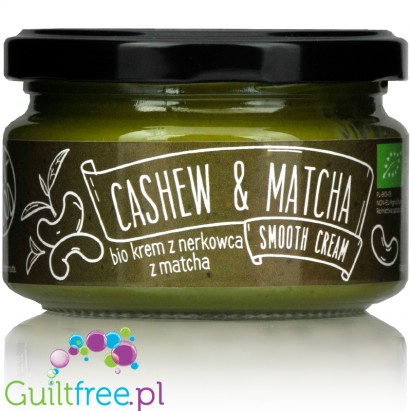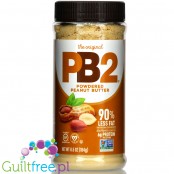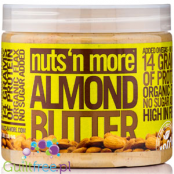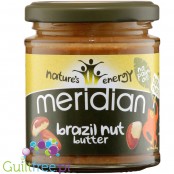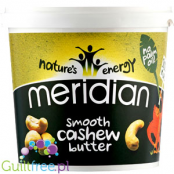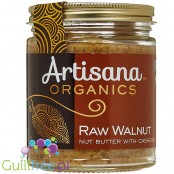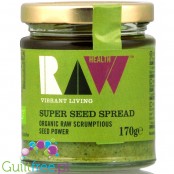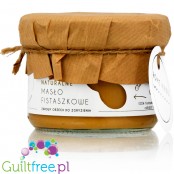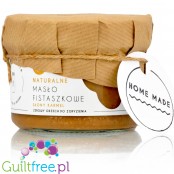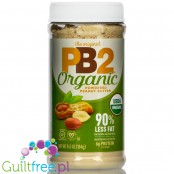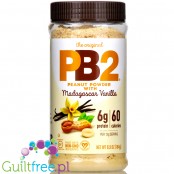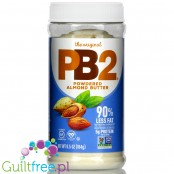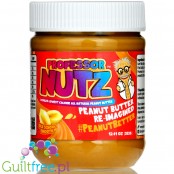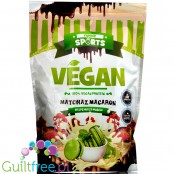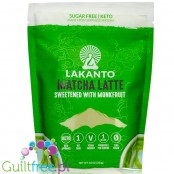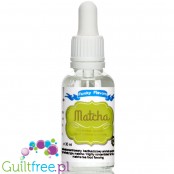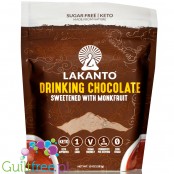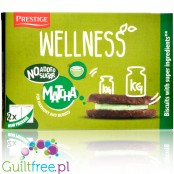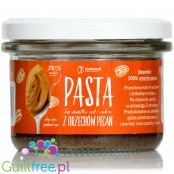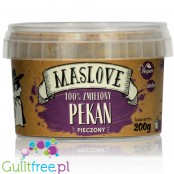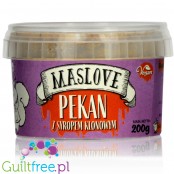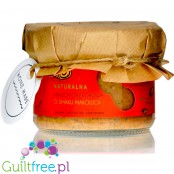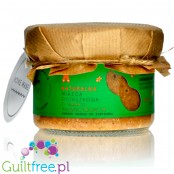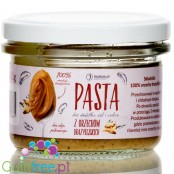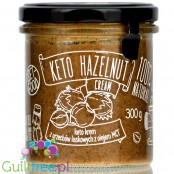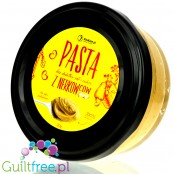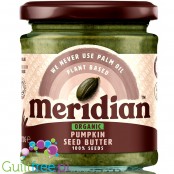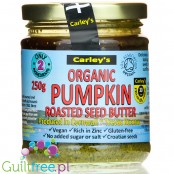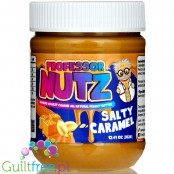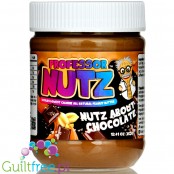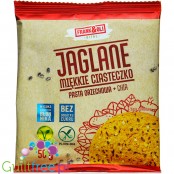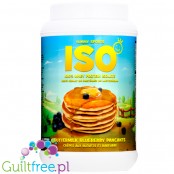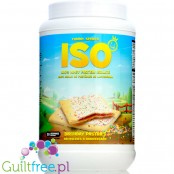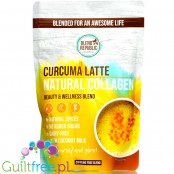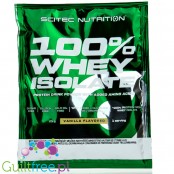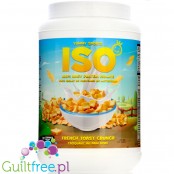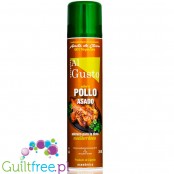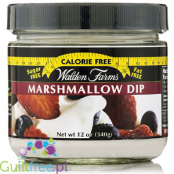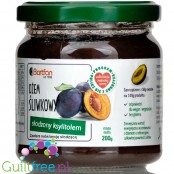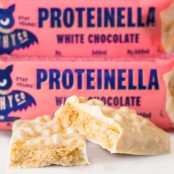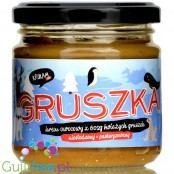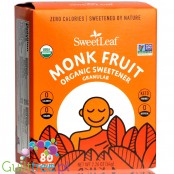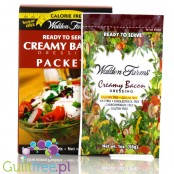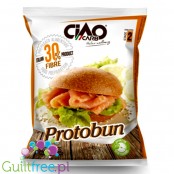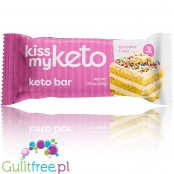Hotline: 885 925 336
E-mail: sklep@guiltfree.pl
Fast shipping up to 48 hours
As many as 12 949 light products
A natural, certified ecological cream of cashew nuts with the addition of Japanese matcha tea, without artificial additives.
Natural, ecologically certified cream (butter) from cashew nuts, prepared only from roasted nuts and organic Japanese matcha green tea, this composition contains no salt, sugar, hardened fats, preservatives and flavor enhancers.
Matcha is a green tea powder with a characteristic, intensely green color of young peas. Matcha has been closely associated with Japanese tradition and culture for centuries and is now considered the most valuable type of tea, its annual production is limited and requires specially shaded plantations - appropriate shading is a guarantee of intensely green, not yellowish shade of the finished powder. Due to its properties, matcha is one of the healthiest ways to supplement your daily diet. Matcha is by far the richest natural source of antioxidants that slow down the aging process of the body and contribute to the prevention of many serious diseases. Because matcha is powdered tea leaves, drinking it, we accept all the nutritional values contained in them, both water-soluble and insoluble ones - and this is the most important difference between matcha and other green teas.
Matcha tea is a rich source of catechins. These antioxidants are distinguished from others by their special properties in neutralizing the activity of free radicals. Thanks to this, catechins reduce the risk of atherosclerosis, have antibacterial and antiviral properties, and lower cholesterol levels in the blood. They play a big role in the process of protecting the skin against the harmful effects of solar radiation. An especially potent antioxidant is the catechin derivative EGCG present in Matchy, also found in other green tea and green coffee varieties. This organic chemical compound has a strong anti-cancer effect and is an antioxidant 100 times stronger than vitamin C. Because we drink matcha, we eat whole ground tea leaves, one cup of this tea in terms of antioxidant content corresponds to 10 cups of plain green tea infusion. The catechins contained in matcha tea, not only support the fight against free radicals, they also have antibiotic properties and strengthen our immune system by acting antibacterial and antiviral.
Traditional matcha powder has four times higher L-theanine content (39 mg per serving) than green tea served in a purse. Sweet, vegetable aroma and taste characteristic of matcha comes from the amino acid L-theanine, which arises as a result of growing under conditions of correct shading of the leaves. It is the L-theanine that gives a clean, silky, delicate taste of tea.
Energy level after drinking a matcha cup can last over 6 hours - although one cup of this Japanese tea provides almost the same amount of caffeine as one cup of coffee, mmatch, unlike coffee, adds energy gradually and allows you to avoid a sudden drop in strength, thanks despite the high caffeine content in matchy, after its consumption there are no side effects typical of the state after drinking coffee, such as hyperactivity, high blood pressure and nervousness. The sense of the flow of energy is more stable than in the case of stimulation with coffee, because caffeine is distributed in the blood in regular doses. There is also no threat of a loss of energy that consumers of strong coffees complain about. It is recognized that 80 milligrams of caffeine in a matcha cup corresponds to 90-150 milligrams in a portion of coffee.
Matcha green tea accelerates the metabolism of the body causing 4 times faster fat burning. In contrast to many diets available on the market, matcha is a natural food supplement that does not cause any side effects such as increased heart rate or raised blood pressure.
Nutrition Facts
Your review appreciation cannot be sent
Report comment
Report sent
Your report cannot be sent
Write your review
Review sent
Your review cannot be sent
A natural, certified ecological cream of cashew nuts with the addition of Japanese matcha tea, without artificial additives.
Net weight 200g
Ingredients: bio, ground, roasted cashews (95%), bio matcha (5%),
Allergic information: May contain sesame and other nuts.
The top oil layer is a natural phenomenon. Mix well before use.
Store in a dry, cool place.
Nutritional value in 100 g: energy value 2366 kJ / 570 kcal, fat 44 g, including saturated fatty acids 8.6 g, carbohydrates 28.5 g, - including sugars 4.8 g, protein 14.2 g, salt 0.6 g
Country of origin Poland
Featured Products
Nuts' n More Almond Butter No Sugar Added with Xylitol and Whey Protein
Meridian Brazil Nut Butter
Meridian crunchy hazelnut butter 100% nuts - roasted hazelnut butter, coarsely ground, with no added sugar and no salt
Meridian smooth cashew butter 100% nuts - smoothly ground cashew butter, no added sugar and no salt
Artisana ™ Organic Raw Walnut Butter with Cashews
Bio Planete Protein - defatted walnut flour
WK Smoke BBQ zero calorie barbecue sauce
Diet Food organic hazelnut butter no salt, no sugar added
Raw Health Organic Super Seed Spread 170g
Meridian smooth cashew butter 100% nuts - smoothly ground cashew butter, no added sugar and no salt
Orzechownia - natural homemade 100% peanut butter 200g
Orzechownia Salted Catamel flavor peanut butter
Bio Planete Protein - defatted peanut flour
VIT HIT Perform Mango & Passionfruit itamin drink with matcha and BCAA
PB2 Organic Powdered Peanut Butter 85% less fat
PB2 Madagascan Vanilla - 85% skimmed peanut butter with banana
PB2 Almond Powdered defatted almond butter
Krukam cashew & coconut paste 300g no salt, sugar &palm oil
Professor Nutz™ zero carb & zero fat peanut butter with AD Vantage™ Fat Blocker and AD Vantage™ Carb Blocker
Yummy Sports Vegan Matchaz Macaron - complete vegan protein blend
MyProtein 6 Layer Matcha
Women's Best Collagen Peptides Plus+ Unflavoured (520g)
Mountain Joe's Protein Brownie Chocolate Caramel
Lakanto Sugar Free Matcha Latte
Sunwarrior Collagen Building Protein Peptides Chocolate Fudge 500g
Funky Flavors Matcha 30ml calorie free, fat free liquid food flavoring
Funky Flavors Matcha calorie free, fat free liquid food flavoring
Lakanto Sugar Free Drinking Chocolate, Monkfruit Sweetened
Prestige Wellness Matcha no added sugar sandwich cookies with creamy filling 69g
Krukam Pecan Butter 100%
Vitaquell bio cocoa butter, edible, perfect for baking, glass jar
Maslove Pecan Nut Butter 100% smooth baked pecan spread
Maslove Pecan & Maple Nut Butter, smoooth baked pecan spread with 5% maple syrup
Orzechownia Makowiec - homemade poppy seed nut spread with no added sugar
Orzechownia Gingerbread - homemade nut butter spread, 100% natural
Funky Flavors Irish Whisky sugar, fat and calorie free liquid food flavoring
Krukam Brazil Nut Butter 100%
Diet Food Keto Hazelnut Cream - MCT infused pure hazelnut spread
Krukam cashew paste mini 30g
Krukam cashew & coconut paste mini 30g
Meridian Organic Pumpkin Seed Butter 170g
Carley's Organic Pumpkin Seed Butter 250g
AD Vantage™ Professor Nutz™ Peanut Butter Salty Caramel
AD Vantage™ Professor Nutz™ Peanut Butter Chocolate
Frank & Oli Millet Chia & Peanut Soft Cookie, no added sugar, vegan, gluten & sweetener free
Banza Chickpea Pasta Mac & Cheese, Classic Cheddar with Shells 5.5 oz.
Yummy Sports ISO Buttermilk Blueberry Pancakes
Sante GoON Protein Crisp Cookies Caramel
PB2 Performance Peanut Protein Madagascar Vanilla 907g
Yummy Sports ISO Birthday Pastries
Blend Republic Turmeric Latte - Golden Milk - keto collagen drink with stevia
Scitec 100% Whey Isolate Vanilla
Frank & Oli Peanut Butter and Banana - vegan soft cookie with no added sugar
Frank & Oli Peanut Butter and Chocolate - vegan soft cookie with no added sugar
Yummy Sports ISO French Toast Crunch 960g
Other customers also chose
Aerosoles Al Gusto Grilled Chicken - smakowa oliwa extra virgin w spray'u, smak Grillowany Kurczak
Walden Farms Marshmallow Dip
Bartfan sugar free plum spread sweetened with xylitol only
HealthyCo Proteinella Bar White Chocolate
Krukam Pear - 100% no added sugar fruit spread
SweetLeaf Monk Fruit Sweetener Packets, Organic 80 packets
Walden Farms Creamy Bacon Dressing sachet
Kit Kat Limited Edition Apple Pie 1.5oz (42g) (CHEAT MEAL)
SlimFast Keto Fat Bomb Shot, Salted Caramel Creme
Ciao Carb Protobun Keto low carb bun
Shrewd Food Protein Crisps Baked Cheddar
Kiss My Keto, Ketogenic Bar, White Chocolate & Birthday Cake
NOCCO BCAA 3000mg Caribbean sugar free drink with coffeine
